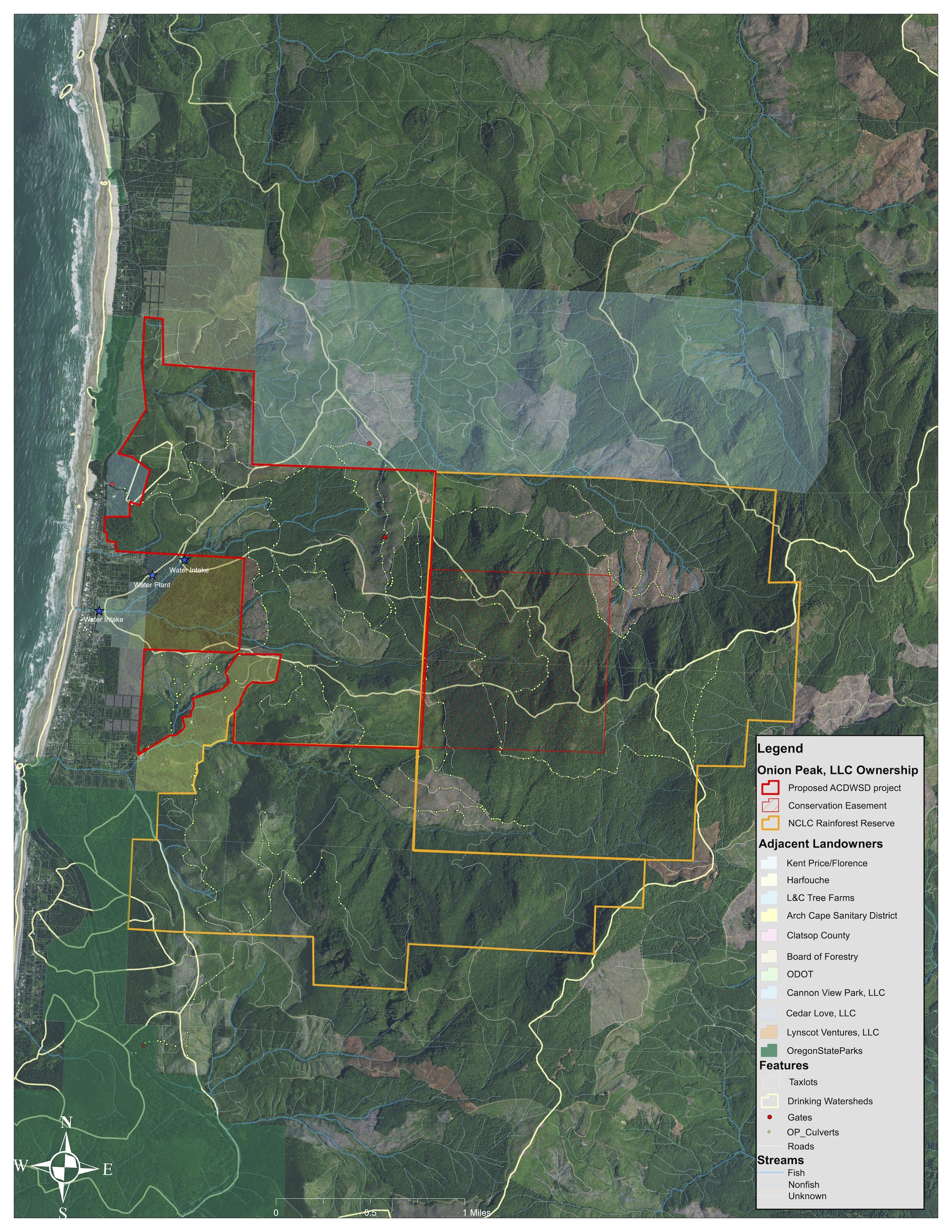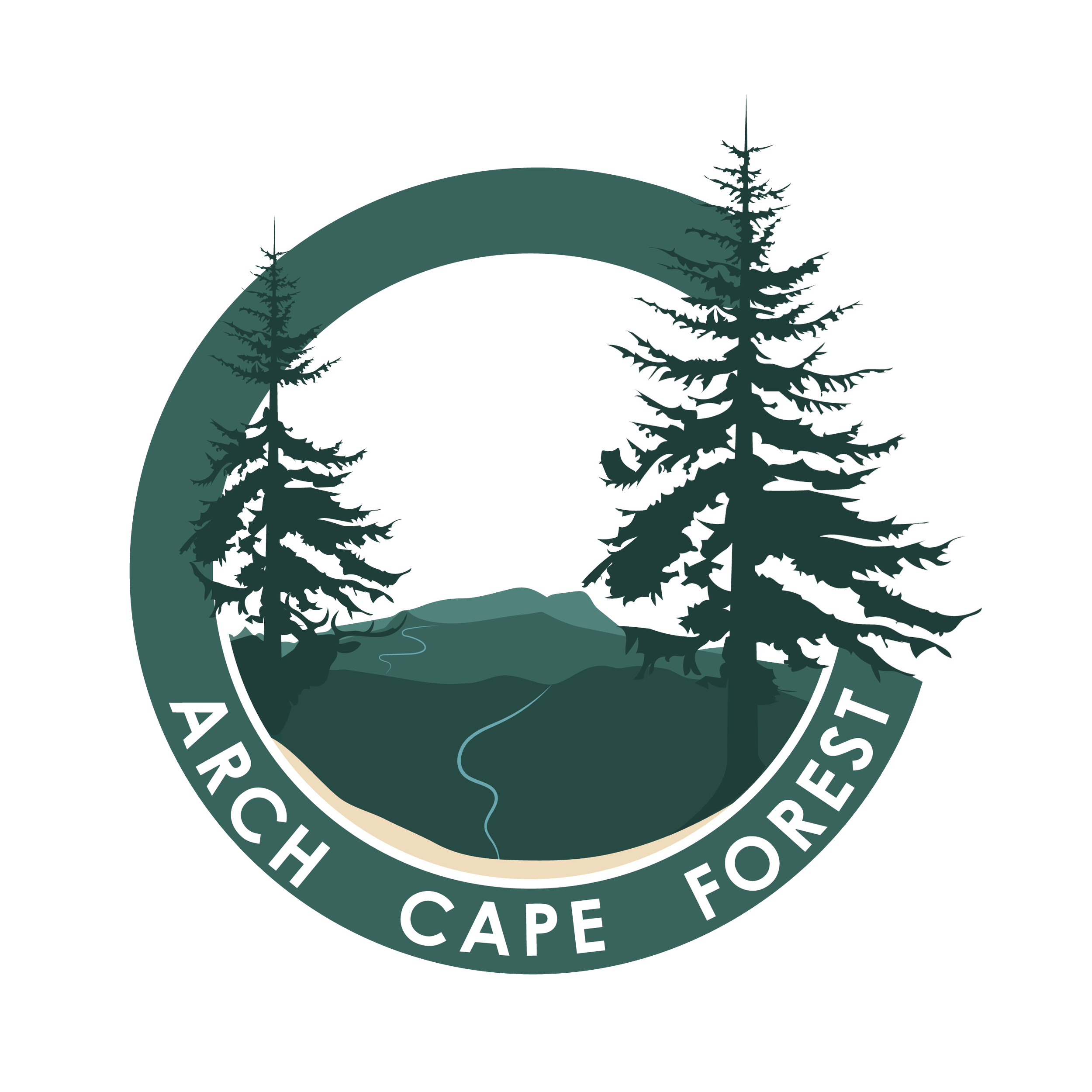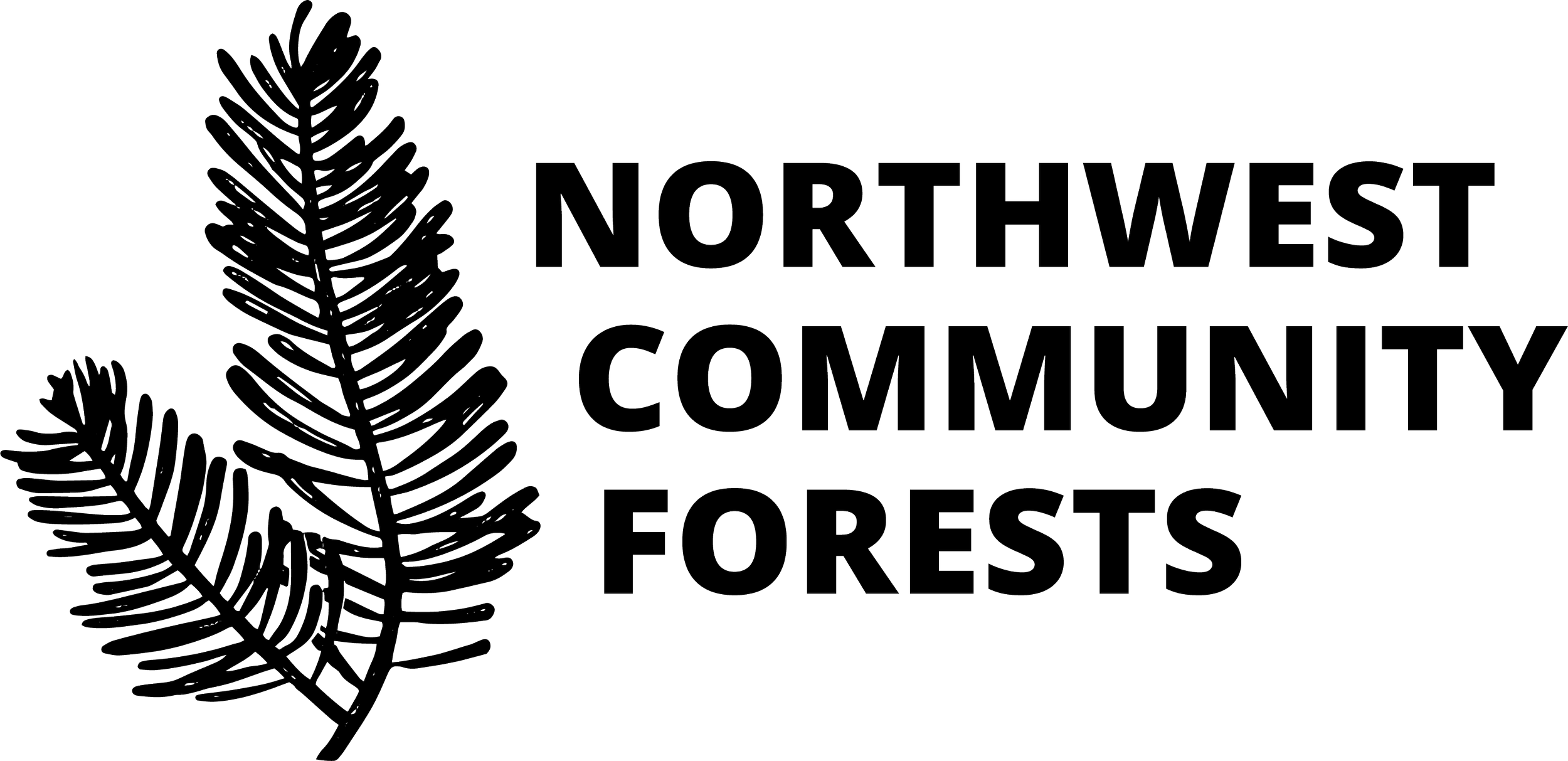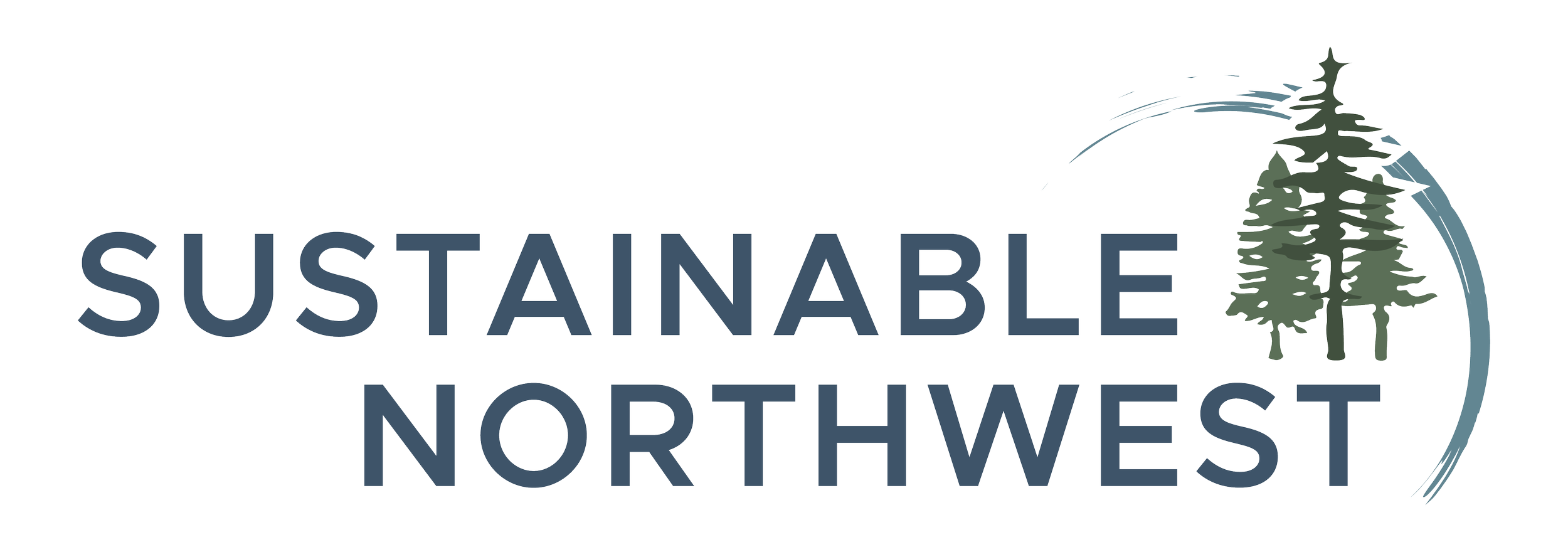Arch Cape Acquires 1500 Acre Coastal Forestland to Protect Drinking Water and Create Community Forest
June 9th, 2022 - The $4.7 million purchase of roughly 1,500 acres of forestland establishes the publicly-owned Arch Cape Forest. The Arch Cape Domestic Water Supply District provides affordable, clean, and safe drinking water to residents of this unincorporated community along Highway 101. After five years of partnership building, fundraising, and community engagement, the District was able to leverage funding from habitat conservation and water infrastructure programs in order to realize the vision of local ownership.
Sustainable Northwest provided strategic planning and project management to the core group of local volunteers and leaders over the 5-year campaign. Sustainable Northwest coordinates the Pacific Northwest Community Forest Coalition, a group of public, private, and not-for-profit organizations that recognize community ownership of select forests can yield multiple benefits without risking forest fragmentation or loss.
Purchasing the watershed protects the source of Arch Cape’s drinking water from fragmentation and conversion to non-forest use. Adjacent to the North Coast Land Conservancy’s Rainforest Reserve, the Cape Falcon Marine Reserve, and Oswald West State Park, the Arch Cape Forest is a part of a habitat corridor that will benefit aquatic and forest species.
“The health and resilience of the surrounding forest directly controls both the quantity and the quality of our domestic drinking water.
The acquisition of the forest permits watershed management primarily for the protection of our water, while providing potential conservation, recreation, and economic benefits.”
- Phil Chick, District Manager, Arch Cape Domestic Water Supply District.
Sustainable Northwest first became involved with the project after an Arch Cape resident attended the 2016 Community Forest Forum. At the time, we staffed the annual meeting of a coalition of over 30 entities who share a conviction that “long-term secure forest tenure combined with local community participation ensures enhanced forest stewardship.“ One unique aspect of the Community Forest Forum is that it brings together staff from nonprofit land trusts, TIMOs and other land managers, natural resource agencies, and local governments.
A healthy forest with diverse streamside vegetation is vital to stabilizing soil, preventing erosion, and improving downstream water quality. The water consumed in Arch Cape arrives first as rainfall on spruce, hemlock, and cedar trees in the watershed's upper reaches. The headlands rise nearly 3,000 feet in the two miles between the Pacific Ocean and Onion Peak, the second-highest peak in Clatsop County and one of the taller peaks in the Oregon Coast Range. Ultimately, this water makes its way down Shark and Asbury creeks and becomes part of the community drinking water supply.
ACQUISITION FUNDING SOURCES
Funding for the project came from various sources, including approximately $3.5 million from the U.S. Forest Service’s Forest Legacy Program. These USDA grants are paid for through the Land and Water Conservation Fund (LWCF), which Congress permanently reauthorized in 2020 and supports $900 million in conservation projects annually.
The LWCF is paid for through royalties from offshore oil and gas and is dedicated to the principle that one resource's consumption can help permanently protect the land and unique character of the nation's water and forests. In turn, the Forest Legacy Program grants the states resources for purchasing land and easements that ensure forests remain in use as forestland in perpetuity.
Applicants to the Forest Legacy Program first make their case at the state level and then compete against other projects nationally.
The Oregon Department of Forestry provided critical support in communicating the values and requirements of the program. It took four application cycles and two successful awards before the project had secured the program’s maximum of 75% federal cost-share. The North Coast Land Conservancy (NCLC) used the land value of a portion of the Rainforest Reserve as an in-kind match to help meet the requirements of the Forest Legacy grants. The remaining match requirements were met by $250,000 from Clatsop County and nearly $300,000 from community contributions. Another $2 million came from the American Rescue Plan Act (ARPA) through Business Oregon. Sustainable Northwest Vice President Dylan Kruse briefed legislators on the project, which ultimately helped win the budget allocation.
Affordability is a key issue for community members. In 2019, representatives of the Water District board, district staff, consultants, and community members with extensive financial and timber industry experience assembled a baseline financial plan that confirmed the feasibility of the purchase and long-term management of the property. By coincidence, a retired forest economist, Clark Binkley, Ph.D., happened to be a community resident and volunteered his expertise during the early days. Because Clark Binkley, Ph.D., is a widely published and respected expert in timberland investment, he helped answer the question, "how can this be a long-term, financially sustainable operation."
To ensure that the conclusions were in line with what the local industry sees daily, we were fortunate to connect with the local area manager and foresters at Gearhart-based Lewis & Clark Timberlands. In walking the roads on the property, foresters at L&C Timberlands, the forestland property manager for Greenwood Resources / Nuveen Natural Capital, were able to share critical feedback on industry best practices (a well-maintained road system reduces the risk of nonpoint source pollution and fine sediment delivery to streams). By the end of this process, a special committee chartered by the water district was able to publicly share a presentation at the August board.
Every community forest establishes a decision-making process to reflect the existing institutions and structure of the long-term landowner. This makes it difficult to define "what is a community forest?" because each community has its own definition. The Arch Cape Community Advisory Committee consists of a seven-member group of residents and representatives of neighboring landowners. After a board resolution to create the committee passed in September 2020, we helped collect applications and set the agendas for the first six months of meetings. Another community champion, Patricia Noonan, chairs the committee and brings her decades of experience as a retired lawyer and local resident.
In 2021, a seven-member community advisory committee voted to adopt a set of forest management policies created through a dialogue with the consulting forester Springboard Forestry, LLC. Going forward, the community advisory committee will engage the broader public before drafting a 10-year operating plan. The water district is currently working with NCLC, Nuveen Natural Capital property management staff at Lewis & Clark Timberlands’ Gearhart office, and consulting planners at the NPS Rivers Trails and Conservation Assistance Program to outline a thoughtful and balanced approach to public access that will allow people to enjoy the natural beauty of the forest while preserving its ecological value.
“The community forest governance model ensures that local people enjoy secure and reliable access to the ecological, social, and economic benefits produced by forests.
The residents and community leaders in Arch Cape volunteered hundreds of hours to make this project possible.
We believe that local engagement and ownership will make for a durable and balanced outcome as the community becomes the long-term stewards of the forest.”
- Ben Dair Rothfuss, SNW Senior Conservation Finance Manager.
LESSONS LEARNED
Community forest ownership offers one tool for achieving multiple community values in specific instances where a community seeks more control over forest assets to achieve specific community values.
However, while large municipalities or cities can finance community forest acquisitions, easements, or other strategies to achieve their goals, small communities do not have a large enough tax base to underwrite community acquisitions. Some states provide bridge funding, concessionary loans, or grants to support small community needs, however, Oregon currently has few programs targeted for small community green infrastructure protection.
This is why the funding for the Arch Cape Community Forest required years of effort to weave together philanthropic contributions and multiple federal and state programs, requiring complex and technical efforts beyond the reach of similarly situated communities.
Sustainable Northwest will work with its coalition partners to highlight this need in federal and state programs to ensure that small communities have the same opportunities as larger population centers to finance green infrastructure to maintain working forests and enhance ecological and recreational values.
PARTNERS & CHAMPIONS
Successfully achieving Arch Cape’s vision of creating a community forest required sustained leadership from:
The Arch Cape Domestic Water Supply District, with special recognition to District Manager Phil Chick and Board President Dan Seifer.
Local residents, including Pat Noonan, Debra Birkby, and Nadia Gardner, volunteers including renowned forest economist Clark Binkley, Ph.D.
Local land trust partners with North Coast Land Conservancy, whose visionary North Coast Rainforest campaign has provided inspiration and energy to the efforts.
Consulting forestry by Ben Hayes (Springboard Forestry) and advice from foresters Chad Washington and David Dougherty from Lewis & Clark Timberlands’ Gearhart / Nuveen Natural Capital.
Pro-bono legal counsel from Greg Fullem at Schwabe, Williamson, & Wyatt.
Critical political support from Senator Ron Wyden, Senator Jeff Merkley, Congresswoman Suzanne Bonamici, and former State Senator Betsy Johnson.
And, of course, a five-year commitment by Sustainable Northwest supported by the Meyer Memorial Trust, U.S. Endowment for Forestry and Communities, the Kelley Family Foundation, the Oregon Community Foundation, and other donors and contributors.
Learn more about the Arch Cape Community Forest!
A broad public stakeholder engagement process is set to begin in July.
THE VOICES OF ARCH CAPE
Hear the story from the Arch Cape Community in a video produced by the Northwest Community Forest Coalition (NWCFC) and Sustainable Northwest!
Make sure to explore the new NWCFC website and find more forest video stories highlighting community forest projects they support!
For more information contact:
Greg Block
President
gblock@sustainablenorthwest.org
To learn more visit our Private Forestlands page.










